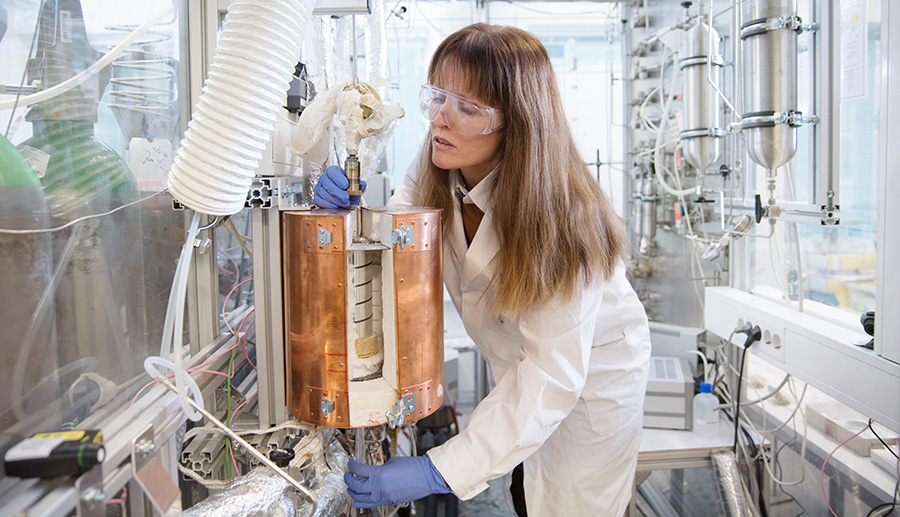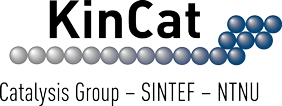About - Catalysis Group (KinCat)

The research and teaching in catalysis, reaction kinetics, petrochemistry and related subjects is organised in the Catalysis Group at the Department of Chemical Engineering, NTNU. This is the largest catalysis group in Norway and the main arena for education of PhD and MSc candidates for Norwegian industry and research institutes. The group consists of five permanents faculty members, approximately 20 PhD students and 5-10 postdoctoral fellows. Every year 10-15 MSc students graduate from the Catalysis Group.
The group is an integrated NTNU/SINTEF research laboratory where NTNU-staff collaborate and share facilities with researchers employed by SINTEF Industry. This collaboration was recognised by NTNU and SINTEF as a Strong-Point Centre (1998) and is formalised through the KINCAT Gemini centre (NTNU/SINTEF twin research centre). Personnel from the two organisations work together and participate in theoretical studies and teaching and research. The group participates extensively in international networks and has close collaboration with a number of universities and research groups inside and outside the EU. The research is funded by the Norwegian Research Council, EU, Norwegian and international industry and other sources, and spans from fundamental studies of ideal surfaces to studies of real catalysts and process development work in small pilot plants.
The Catalysis Group was a research partner in a Centre for Research-based Innovation (Innovative Natural Gas Processes and Products – inGAP) in the period 2007-2015.
Since 2015, the Catalysis Group is heading a new Centre for Research-based Innovation: industrial Catalysis Science and Innovation (iCSI) – for a competitive and sustainable process industry. The main objective of iCSI is to boost industrial innovation and competitiveness as well as to provide efficient, low-emission process technology. The centre director is Professor Hilde J. Venvik.

